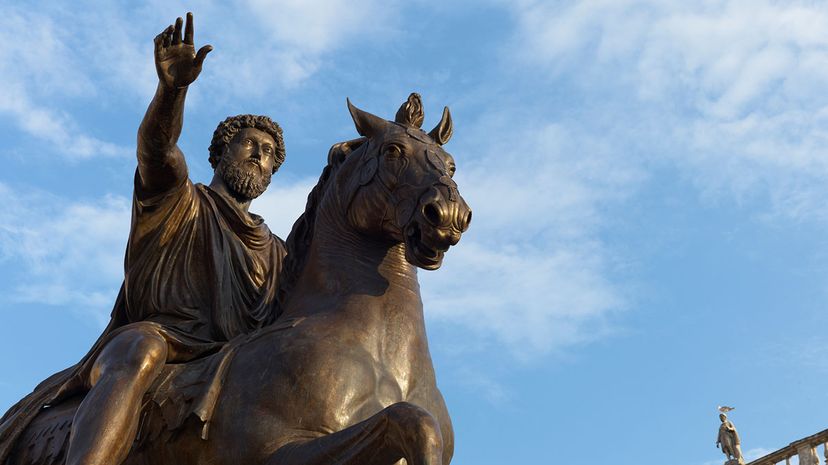
If your idea of philosophical debate is limited to trees toppling in forests with no one around to hear them, the entire concept of Stoicism may seem a tad ... complicated.
We're not talking "stoicism" as we know it today. Nowadays, a stoic — with a lowercase "s" — is someone who has an indifference to emotions and pain. Think Star Trek's Mr. Spock. Think someone with a stiff upper lip. Think "Keep Calm and Carry On."
Advertisement
Stoicism — the philosophy, with a capital "S" — is much more complicated. And much older. Stoicism is an ancient philosophy, debated and practiced by Stoics in Greece and Rome thousands of years ago and taught to generations of followers. It's not dried-up ideas on parchment, either. Today, Stoicism is enjoying a renaissance all over the world.
Modern-day Stoics — again, capital "S" — write books ("How to Be a Stoic: Using Ancient Philosophy to Live a Modern Life, Stoicism and the Art of Happiness") and blog (How to be a Stoic, Daily Stoic, and the dueling sites Modern Stoicism and Traditional Stoicism). They form local chapters to discuss Stoicism's value. They even get together in a big soul-searching convention called a Stoicon. It's like Comic-Con, only with Marcus Aurelius and Epictetus instead of Batman and the Avengers. The slogan of the 2016 convention, held in New York City? "Get Your Stoicon"
The entire civilized world once was ruled by a Stoic: the aforementioned Marcus Aurelius, emperor of Rome from 161-180 C.E., who was often referred to as the philosopher king [source: De Imperatoribus Romanis].
Stoicism is not a religion, but it has informed some, including Buddhism (for mindfulness) and Christianity (monotheistic belief, self-examination and acceptance of God's will) [source: Logos Talk, Philosophy for Life]. Of course, there are many differences between these religions and Stoicism and many modern Stoics are atheists. Links to Stoicism can also be found in cognitive behavioral therapy, with its emphasis on logic and controlling one's thoughts and beliefs.
Above all, perhaps, Stoicism is a philosophy that teaches the value of emotional control in living one's life fully. Moral goodness and happiness can be achieved by being perfectly rational. The tricky part? One of Stoicism's main precepts is that man (sorry, philosophers used to talk in the masculine all the time) must recognize that some things are beyond his control [source: Traditional Stoicism].
How? Ah, yes. As a great writer once penned, there's the rub. It's not easy, and all the misconceptions floating around can make the entire idea of Stoicism confusing. Let's see how it started.
Advertisement

